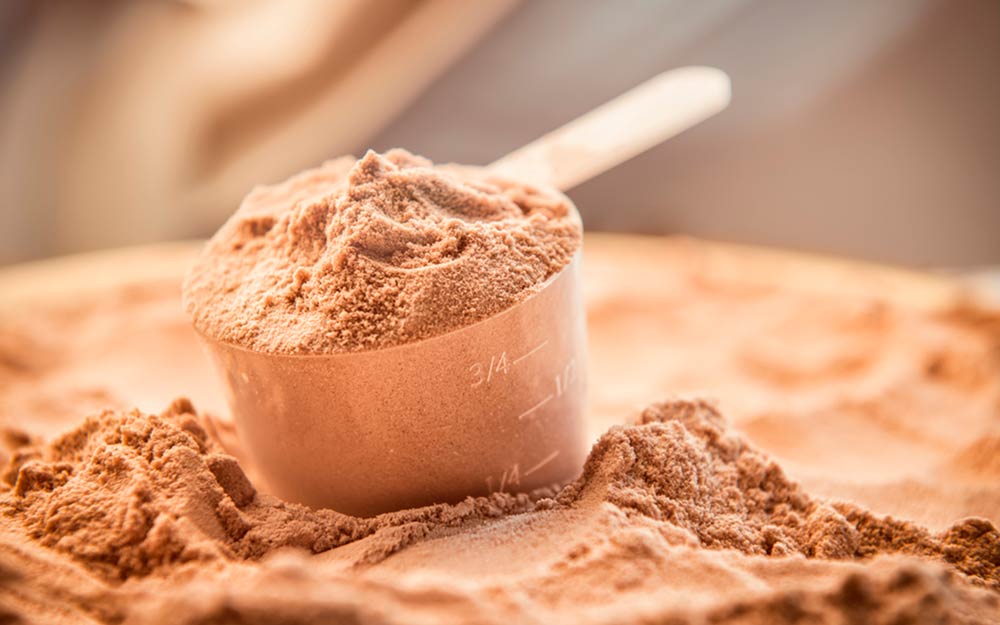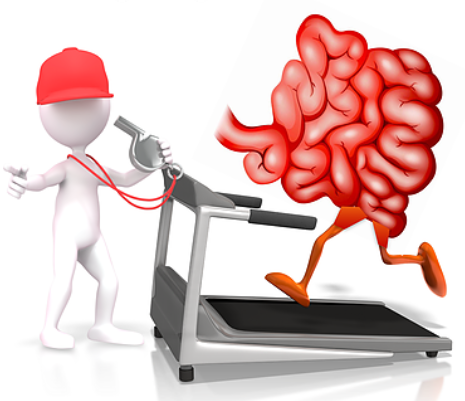"Here at TORQ, the functionality of every product we produce is backed up by a sound level of peer reviewed independent research. This is something we spend a lot of time looking into before we even consider launching a product. It is an essential part of our philosophy but, also equally as important to us, is that we don’t mislead the public and create hysteria around a product just for potential ‘sales’. If the research supports a performance benefit, we’ll make that product and, if it doesn’t, we won’t. It sounds pretty logical, but unfortunately, when some marketers get their hands on a sports nutrition product, the benefits of its use can be spun into a spider’s web of customer entrapment. Benefits can be exaggerated somewhat."

An example of this has taken place in recent years with the growth in the number of sports nutrition companies adding protein to energy drinks, designed for use during exercise, with claims of significantly increased endurance performance and better hydration. At TORQ, we don’t produce such a product for a number of reasons summarized below, backed by extensive research:
- Lack of scientific support – Where a few studies have shown a positive effect of performance during exercise - all of which had flaws with their methodology - a far greater number of studies have shown no affect on performance.
- Note: the studies which did show a benefit occurred only when the athlete(s) were in a depleted state of carbohydrate. Similarly, none of the research has proposed a feasible physiological mechanism to explain how protein would help performance during exercise when an athlete is fueled properly with carbohydrate.
- Protein makes up a very small proportion of the body’s fuel during endurance exercise and is not its preferred source of fuel (limitations of gluconeogenesis - more on that below). It is also something the body already has stored in abundance.
- Stomach upset during exercise can often be a problem for athletes trying to fuel optimally. Protein requires a greater amount of digestion (think bloodflow) than carbohydrate and, when already saturating the stomach with vital carbohydrate, the addition of protein can result in the dreaded GI/Stomach upset and restricted absorption.
In short, when an athlete is properly fueled with carbohydrate, the body will not utilize protein as a fuel (via gluconeogenisis). When the body is in a depleted carbohydrate state, the athlete's performance is substantially limited where the use of protein as a fuel source is then warranted by the body (lengthy process). If an athlete does consume protein during exercise, especially intensive, the blood required to aid digestion is limited (used by athlete's muscles) and gastrointestinal distress is highly likely. Kiss performance goodbye.
To understand the full story on protein, and impact as a fuel source, we have explained why taking on protein during exercise is simply not a good idea in detail below.
Before we even consider the research and what it shows, we look at the fundamentals of fuel metabolism during endurance exercise. You will see why even some of the world’s top sports scientists were slightly bemused when claims were first made that the addition of protein offered a performance benefit to endurance exercise.
Fundamentals of Fuel Metabolism
During endurance exercise, carbohydrate and fat are the body’s two main fuel sources. At low exercise intensity, fat is the major fuel source for the working muscle. Fat is a very efficient fuel; it is stored in abundance in the body and even very small amounts, when combined with oxygen, are able to produce a great deal of energy for the working muscle. As a very energy dense fuel source stored in great quantities in the body, it is almost impossible to deplete the body’s stores unless exercising for a period of weeks.
Once the intensity of exercise increases and the aerobic system reaches its threshold for energy production (the point where the chemical reactions involved with burning fat cannot keep up with the requirement of energy from the muscle), the body begins to use the anaerobic system to reach the energy demands of the working muscle. The anaerobic system burns exclusively carbohydrate as a fuel which is a very easy fuel for the body to utilize. It produces a lot of energy very quickly and doesn’t require oxygen, but produces lactate as a by-product. The major crux of this system though is carbohydrate is something the body has a very limited store of and is a fuel that, when exercising hard, the body can burn through very quickly. We will come onto that in more detail shortly.
Now you may be starting to wonder where protein comes into this, and quite rightly so? Protein makes up a very small proportion (less than 5%) of the total energy expenditure of exercise and, as such, isn’t significant. Even then, the only time that protein becomes a fuel source is when carbohydrate stores are completely depleted. Once this happens, the body begins to breakdown its proteins in the form of precious muscle, in an energy-sapping process called gluconeogenesis, to create carbohydrate. If adequate carbohydrate is provided in the first place, this process doesn’t need to happen at all – and it shouldn’t.
If an athlete goes into a training session with their carbohydrate stores fully topped up, they will have around 2000 kcal (500g worth) of carbohydrate stored in their muscles and liver. These stores can be depleted in as little as 90 minutes when exercising at a moderate to high intensity and, when the body’s carbohydrate stores become fully depleted, there is a catastrophic drop in performance, often referred to as ”bonking” or “Hitting the wall”.
The main goal for an endurance athlete is to prevent this from happening and this can be achieved through a number of ways:
- Train the body to be better at burning fat – By completing long steady training sessions which stress the aerobic system, we are able to increase our body’s ability to utilize fat as a fuel. This means that carbohydrate doesn’t start to be used until a higher intensity of exercise and therefore “spares” the body’s precious glycogen reserves.
- Carbohydrate load in the run up to the event – This forces the body to saturate its muscle and liver stores of carbohydrate, allowing more precious carbohydrate to be available and therefore allowing the athlete to exercise longer before “bonking”.
- Fuel optimally for exercise – This is where energy drinks and gels come in; they allow you to take on board an exogenous (external) form of carbohydrate that your muscles will use instead of your stored carbohydrate. Every gram of carbohydrate you consume from a food or drink source whilst exercising is a gram you’re not using from your stores, so this will extend the time to total exhaustion.
On that last point, research has shown that an optimal carbohydrate intake is 90 gram per hour when utilizing a 2:1 Maltodextrin:fructose mix, which is 40% more than in a traditional maltodextrin or glucose-alone drink, the next best energy delivery system (60 grams per hour).
This 90 grams of carbohydrate completely saturates the transporters in the gut (these trasnporters 'drag' carbohydrate into the blood stream). Although any kind of carbohydrate fueling will benefit the athlete above and beyond the use of water, the extra 30 grams of carbohydrate delivered through 2:1 Maltodextrin:Fructose spares the body’s limited endogenous (muscle and liver glycogen) stores further and allows the athlete to maintain their pace for longer, greatly enhancing endurance performance. This is the true competitive advantage for an endurance athlete. Be sure to check out our TORQ Fueling System, simplifying this philosophy for the athlete.
Protein During Exercise & GI Distress
The most significant reason not to add protein to a sports drink during exercise is because of the problems associated with gastrointestinal (GI) upset/restriction of absorption. Protein takes the stomach much longer to breakdown than carbohydrate, so the addition of protein in an energy drink poses a significant risk of slowing down the absorption of vital carbohydrate.

During exercise the gut has a very limited capacity to absorb carbohydrate as all of the blood it normally relies on to digest food is diverted to the working muscles. Protein, along with fats, require greater digestive processing (i.e. blood) to process; therefore, protein negatively affects your body's limited ability to process vital carbohydrate, as well as keep your gut feeling right for intensive exercise (i.e. gut rot).

For more in depth information on the actual studies which pioneered the pre-mature 'benefits' of protein as a performance fuel, click TORQ - Protein during exercise for our TORQ Performance Nutrition and blog.
References
Cermak NM, Solheim AS, Gardner MS, Tarnopolsky MA & Gibala MJ. (2009) Muscle Metabolism during Exercise with Carbohydrate or Protein–Carbohydrate Ingestion. Med Sci Sports Exerc. 41(12): 2158–2164.
Rowlands DS & Wadsworth DP. (2011) No Impact of Protein Coingestion on Exogenous Glucose Oxidation during Exercise. Med Sci Sports Exerc. Sept 16 [Epub ahead of print]
Saunders MJ, Kane MD & Kent Todd M. (2004) Effects of a Carbohydrate-Protein Beverage on Cycling Endurance and Muscle Damage. Med Sci Sports Exerc. (36): 1,233–1,238.
Stearns RL, Emmanuel H, Volek JS & Casa, DJ. (2010) Effects of ingesting protein in combination with carbohydrate during exercise on endurance performance: a systematic review with meta-analysis. J Strength Cond Res. 24(8): 2192–2202.
Ivy JL, Res PT, Sprague RC & Widzer MO.(2003) Effect of a Carbohydrate-Protein Supplement on Endurance Performance During Exercise of Varying Intensity. Int J Sports Nutr Exerc Metab. (13): 382–395.

